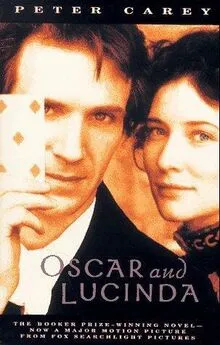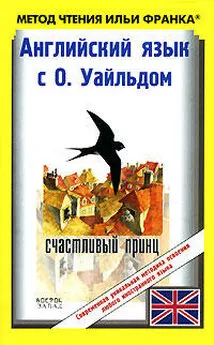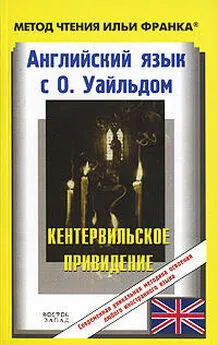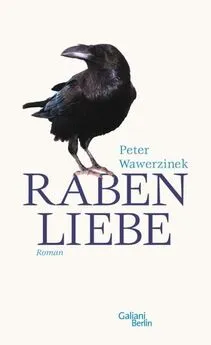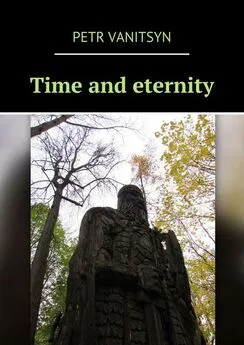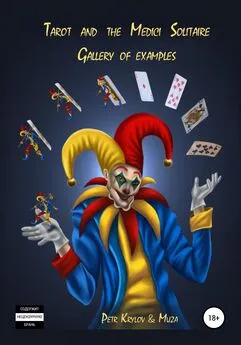Peter Carey - Oscar and Lucinda
- Название:Oscar and Lucinda
- Автор:
- Жанр:
- Издательство:Vintage Books
- Год:1988
- Город:New York
- ISBN:0-679-77750-4
- Рейтинг:
- Избранное:Добавить в избранное
-
Отзывы:
-
Ваша оценка:
Peter Carey - Oscar and Lucinda краткое содержание
The Booker Prize-winning novel-now a major motion picture from Fox Searchlight Pictures.
This sweeping, irrepressibly inventive novel, is a romance, but a romance of the sort that could only take place in nineteenth-century Australia. For only on that sprawling continent-a haven for misfits of both the animal and human kingdoms-could a nervous Anglican minister who gambles on the instructions of the Divine become allied with a teenaged heiress who buys a glassworks to help liberate her sex. And only the prodigious imagination of Peter Carey could implicate Oscar and Lucinda in a narrative of love and commerce, religion and colonialism, that culminates in a half-mad expedition to transport a glass church across the Outback.
Oscar and Lucinda - читать онлайн бесплатно полную версию (весь текст целиком)
Интервал:
Закладка:
Hugh Stratton said: "You have paid your buttery bill." This was not said in a spirit of congratulation but, rather, accusation. He shook his head slowly, as if he were at once exhausted by but resigned to this example of the young man's treachery.
Oscar was, by now, quite accustomed to Hugh Stratum's fretful moods, but they had not lost their power to disturb him and he was, as usual, reduced to a sort of paralysis, knowing that almost anything he said would make the matter worse.
When Mr Stratton unbuttoned his coat Oscar held out his hand to take it from him, but the offer was not accepted. Mr Stratton draped the old-fashioned black gabardine on the end of the bed.
"And drinking coffee," said Mr Stratton, walking over to the table the scout had spread for breakfast. He lifted the lid of the tea-pot as if it were a clever disguise for secret luxuries.
"Oh no," said Oscar, "not coffee," and looked unhappily at the cold tight skin that was forming across the top of his porridge. He was hungry. It was his normal condition.
"Not?" said Mr Stratton. He squinted at the student, and then down into the pot. "Not?" "I hope you received your coffee."
"Oh, yes, we received it," said Hugh Stratton, meaning nothing in particular by his emphasis on received, wishing only to give the impression that he knew what tricks were being played, whatever they were. "And very nice too," he said, "forgetting" his wife's request that he pass on her especial thanks for so thoughtful a gift. "How are things in Hennacombe?" asked Oscar. "I bring a question from it. It is this: do you have an income? Because if you do, young man, you have deceived me." "Oh, no, Mr Stratton, please."
"Please nothing," said Mr Stratton. "I would take it very ill if you had tricked me. No, thank you, I would rather stand."
"I have not tricked you," said Oscar, pushing the hard-backed chair back against the breakfast table. "You have been too kind to me to deserve trickery." mi
Oscar and Lucinda
"Then how do you send me coffee? Explain that. It is fifteen years since I could afford coffee, and now you, a poor creature who did not know his Athanasian Creed two years ago, a pauper who would beg to be made a servitor, now you are so gracious as to send me this luxury with no explanation."
"Dear Mr Stratton, it was because I love you both. I meant no offence." At the mention of "love" Mr Stratton blinked. "And now I hear your buttery bill is paid," he said.
"I marvel at the sources of your intelligence," said Oscar, meaning to flatter, then panicking in mid-sentence when he saw it could be construed as rude.
Hugh Stratton stopped blinking. "I know everything," he said. "If you walked to Kidlington to say your prayers then I would hear about it."
Oscar thought: He knows I have been gambling. Then he thought: No, he does not. Mr Stratton had the subject firmly and would not let it go but then, it seemed, neither did he know what to do with it. "I am losing my health and my sleep worrying about how you may be supported here. I have written letters to the men whom I have previously asked to donate funds for the restoration of St Anne's. This is not wise of me. It damages me. It is a fine old church and I fear I have done its cause a great disservice. And then you send me coffee."
"Also: I pay my buttery bill. Surely this makes your worry less onerous?"
"But how did you make money?" asked Hugh Stratton, screwing up his face and tucking his chin into his neck. "Where did it come from? Is it from your father?"
"No, of course not."
"Do not 'of course not' me, young man."
"Dear Mr Stratton, I only wish you not to worry. God will provide for me." The Reverend Mr Stratton struck his brow with his fist. "Do not, I beg you, be so simple."
"Perhaps I am simple," said Oscar stubbornly, "but I should like to take responsibility for my own bills. I would wish you to worry no longer."
"Your father is paying."
"I swear to you he is not," said Oscar who was due to leave for Epsom in fifteen minutes. Wardley-Fish's binoculars sat on the ledge
in1?
Ascension Day beside the breakfast table, but they were of even less consequence than a suitcase.
"Then how," the clergyman hissed, "are you paying?" Oscar felt obliged to tell the truth, was about to do so, but then he thought: He will take the gossip back to Hennacombe and use it against my papa in some way.
"You are up to no good," said Hugh Stratton. "For all I know you are a member of a betting ring. There was one in my time, three Hons too, and they were all of them sent down. You must promise me you would never be involved in such a thing. I am raising money for my little church's restoration in Oxford. I cannot have my name
brought low."
"My dear patron," said Oscar, allowing himself to touch Mr Stratton on his rigid shoulder, "there is no need for such a promise."
There were heavy steps upon the stair. Oscar thought: It is Fish. But the steps passed on. It was not Fish.
"No need," said Oscar, "at all."
Hugh Stratton narrowed his eyes and stared fiercely at his protégé. If Oscar had not known him he would have imagined himself hated, but in a moment the gaunt face became loose and floppy and a small pink tongue came out to dampen the dry white corners of the mouth.
"You are a good boy, Oscar," he said. "You must not think that I imagine otherwise." vi,:.-., vvy;.•,*'.;."-x^ ^ •:..-•••'.•:•.• ••-<.',~ •;."•
31
Ascension Day
•V
There was something wrong with Lucinda's dress. She did not know what it was, but it attracted attention. She had no confidence in the stupid fashion which bespoke mincing and vapidity. But her own judgement was of no use in the matter and she had purchased in accordance with the preferences of Chas Ahearn and his lavender-water
im
Oscar and Lucinda
wife. Even now, on the day of departure, they would not let her be but shepherded her, the one huffing and blowing, the other wobbling on her ankles and complaining about the dangerous timbering on the wharf. People stared and she assumed it was the dress. A larrikin threw a rock to fright her with its splash. She was in a fright anyway. She needed neither larrikins nor Ahearns to make it any worse. She had her inheritance, her parents' lives rendered down as whole sheep are rendered down to tallow, something living and breathing that has become reduced to a piece of paper, a bank draft she could cany in this silly beaded purse and which, in the words of Mrs Ahearn, would "have you married in a jiff, and to the best in all the colony, a judge, a governor, yes, indeed, I mean to say."
Mr Ahearn thought that wishing for a governor went too far. Mrs Ahearn thought not. Their excitement made them quite insensitive to the feelings of the young heiress whose eyes were slitted to contain her anger. How dare they. They would dress her up in silly frippery and never once think how her Papa and Mama had worried and fretted over every penny. This money did not belong to them, or to her either. The money was stolen from the land. The land was stolen from the blacks. She could not have it. It was thirty pieces of silver. She would give it to the church. Indeed, she tried. She made a written offer to the Baptist Church but the minister, instead of accepting, visited Mr Anglican Ahearn and together they conspired that she should keep it. And she wished to keep it. She was alone in the world, orphaned, unprotected. She trusted nothing so much as she trusted that money, which she wished, fiercely, passionately, to keep, even while she tried to give it away. There was no one she could talk to about her feelings. She was pinned and crippled by her loneliness. In the afternoons she lay in her bed. There was a spring coiled tight across her chest. She held her arms straight and rigid by her side, like a trap waiting to be triggered.
Lucinda Leplastrier was leaving Parramatta and going to Sydney. She was going against the most passionate advice, but she could not bear to be in Parramatta any more. Everyone wished to steer her this way and that, have her sit down, stand up, while all the time they smirked and thought her simple. She thought her simple. She thanked her God in heaven that she had money and was not at their mercy. And now there was this one final series of misunderstandings and she would be gone. Her crinoline cage bumped and swayed against the pressure of Mrs Ahearn's wobbly-ankled perambulations. Everyone encouraged her to see this crinoline as an
"improvement." She thought
irtA ^
Ascension Day
them ignorant. The impracticality of the garment made her angry. She also had a silly hat. No wonder they stared at her.
Mr Ahearn had it into his head that she should on no account travel down to Sydney with the hoi polloi aboard the packet. He was one of those men who must always deliver you safely to his friend, his associate, his colleague. If you are going to Woop-Woop, he will know the bank manager of the Australasian or the dog-catcher or Jimmy Jones, the sergeant of police. As for Sydney, he was not quite so knowledgeable, but he had a letter of introduction to Petty's Hotel and to Mr James d'Abbs thé accountant-a funny little chap, but somehow a relation of his wife. And Miss Leplastrier certainly must not travel on the packet steamer, but with his good friend and trusted client, Sol Myer, who was taking nothing down to Sydney but cold white cauliflowers and would, in any case deliver her gratis to the Market Street Wharf where there were none of your predatory types you found at Semi-Circular Quay waiting to prey on foolish young ladies. The foolish young lady's face hurt from false smiling. It was Ascension Day and you could feel the winter lying like a snake along the water. Lucinda's hair had been spared the scissors for three months and now that it had grown to a length her custodians judged more ladylike, Mrs Ahearn had pulled it up tight on her head and secured it with pins and clips. But pins and clips would not work. They had never worked. Her hair was a sea of little snakes, each one struggling to insist on its freedom. She patted her prickling neck feeling as the first wisps of hair escaped. The pins were merely ineffectual, but the patented clips grabbed at her. They dragged and stretched the hair at the roots. Lucinda could not understand the logic: how one's hair must be grown long in order to be pulled up short. Her nose and cheeks felt far too prominent. She wished her hair released so it might stop her headache, so her features might be softened, but no, it was not allowed. She got, instead, the Garibaldi hat and Mr Ahearn's little joke-he pretended to be much amused by ladies' fashions-that it looked like a pimple on a pumpkin.
Lucinda, imagining the expression referred to her red cheeks, was mortified, but Mr Ahearn had liked the expression for its sound, not its verisimilitude-the hat was not too small, nor her cheeks too red. He was a silly puritanical man who wished to show that he cared for her, but had no proper way of doing it, and his attempts resembled his wife's wobbly walk-all that bumping and shoving when all he intended, as she did, was solicitude. It was already noon, late for a weekday market trip, but not for a
Читать дальшеИнтервал:
Закладка:
